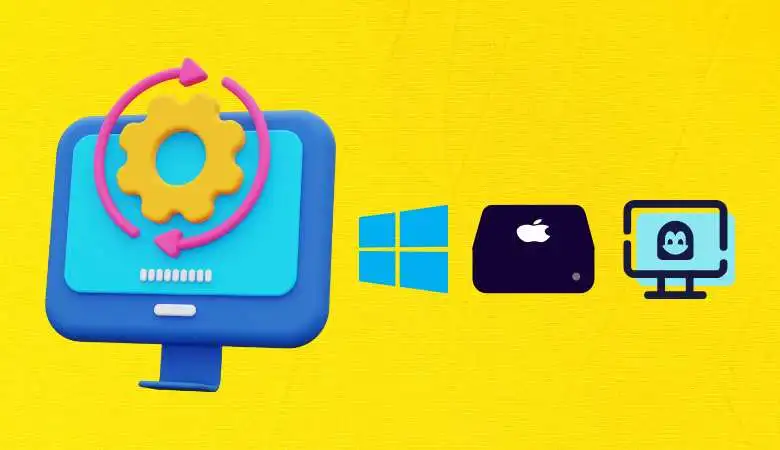The Most Demanded by Companies in 2024 is Soft Skills

Soft skills have become a critical aspect in selecting and developing company personnel, especially in an increasingly automated and technological labor market. Empathy, communication, social skills, creativity, emotional intelligence, learning ability, and analytical thinking are essential in the digital environment.
Currently, soft skills can multiply the value of technical profiles. This is shown by the Booming Jobs Report study published by Linkedin, in which 57% of the managers consulted consider soft skills more valuable than hard skills.
The soft skills that succeed in 2024 (at work)
But what are soft skills? And what is the difference between soft skills and hard skills? Soft skills are non-technical skills related to character and social relationships. They allow us to work as a team, manage conflicts, or use our time better. They become, therefore, essential if we want to perform our work well and make organizations more efficient. Developing soft skills in employees and companies will help increase productivity and offer a great return on investment. But which ones, specifically, are the most in-demand today?
1. Troubleshooting
We have faced constant problems and unforeseen setbacks in the last two years. That is why companies value, now more than ever, those people capable of solving them. Decisive professionals who show proactivity and know how to find a creative response to the problems that may arise daily.
2. Flexibility and adaptability to change
Another of the most in-demand and necessary soft skills to position yourself in the labor market is the ability to adapt to change and have a flexible attitude. In a constantly changing environment, flexibly accepting new tasks and challenges and integrating new processes is a highly valued skill. This will help you acquire new technologies, new functions, or responsibilities and be able, ultimately, to manage changing needs. Flexibility and adaptation to change will also help you work on projects with accelerated schedules.
3. Emotional intelligence and empathy
Connecting with our colleagues or employees, collaborating, and establishing quality relationships are one of the most valuable soft skills for workers. Managing one’s feelings and those of others is essential to adapt to collaborative environments.
In this sense, emotional intelligence and leadership go hand in hand since it is the secret to being a good leader. On the other hand, empathy allows us to consider the feelings and emotions of the people we work with and put ourselves in their place or situation. These soft skills and critical thinking will help you work better and generate more confidence in the team.
4. Communication skills
Communication is one of the most traditionally valued soft skills, and it will continue to be so. Communicating ideas, knowing what and how to say them, and practicing active listening are vital communication skills for working or leading teams. And even more so today, when hybrid work is no longer exceptional, we must communicate through different channels and adapt to different audiences and situations.
5. Ethical responsibility
Professional ethics are linked to honesty, integrity, and personal values. Responsibility and ethics help inspire people, motivate them, and positively influence them. That is why it is a highly valued soft skill, even though it is not one of the easiest to detect at the beginning. Managing integrity and ethics can be critical to consistently succeeding in a volatile environment.
6. Ability to manage time
Knowing how to plan time, organize, and be able to prioritize tasks is an essential quality in companies. Time management at work is critical to maximizing efficiency and being more productive. Likewise, knowing what lessons can be delegated and what the priorities are at all times can be decisive in making a difference and achieving professional success.
7. Creativity and innovation
Creativity and innovation are vital skills that allow us to go beyond conventional paths, proposing original ideas and disruptive solutions. These competencies drive advancement in all business areas, from product development to process improvement, ensuring an organization can adapt and thrive in an ever-changing marketplace. Fostering an environment where creativity and innovation are valued means supporting calculated risk-taking and experimentation, which are essential for evolution and long-term success.
8. Leadership
Leadership is the ability to inspire and mobilize people towards a shared vision, facilitating collaboration, driving change, and bringing out the best in each team member. A good leader leads, listens, and adapts, creating a work environment where everyone feels valued and empowered to contribute. In today’s dynamic business world, leadership includes managing diversity, fostering inclusion, and promoting your teams’ personal and professional development.
9. Capacity for continuous learning and development
In a current context marked by the rapid evolution of technology and constant changes in market structures, the ability to learn and the commitment to continuous development are essential. These skills involve intellectual curiosity, the willingness to seek knowledge, and the ability to apply what is learned effectively. Individuals who possess these qualities tend to adapt quickly to new situations and technologies, maintaining their competitiveness and relevance in the world of work.
10. Persistence and resilience
These soft skills are the core of an individual’s ability to face challenges and recover from setbacks. Persistence and resilience translate into the tenacity and mental strength necessary to persevere in adversity, learn from mistakes, and move forward with renewed focus and optimism. In the professional field, these qualities are essential to overcoming obstacles and achieving long-term goals, even in uncertain or changes.
11. Multiculturalism and global awareness
In an interconnected world, the ability to operate and collaborate effectively in multicultural contexts is more important than ever. Multiculturalism and global awareness involve understanding and appreciation for cultural differences, the ability to communicate and work with people from diverse backgrounds, and awareness of the global impacts of local actions. These competencies enable professionals to lead various teams, foster inclusive environments, and make conscious decisions that respect the plurality of perspectives and realities in the global arena.
Undoubtedly, we live in an increasingly automated work environment in which technology plays a very relevant role. But precisely for this reason, there is an increasing demand for soft skills, those that, exactly, are not replaceable.
As recalled in the report The Future of the Workplace by the consulting firm McKinsey, the demand for social and emotional skills will increase by 24% in 2030. Because these skills are already the driving force of organizations, they will be even more decisive in the future since, thanks to them, workers can adapt to different situations and environments and face new challenges efficiently.





